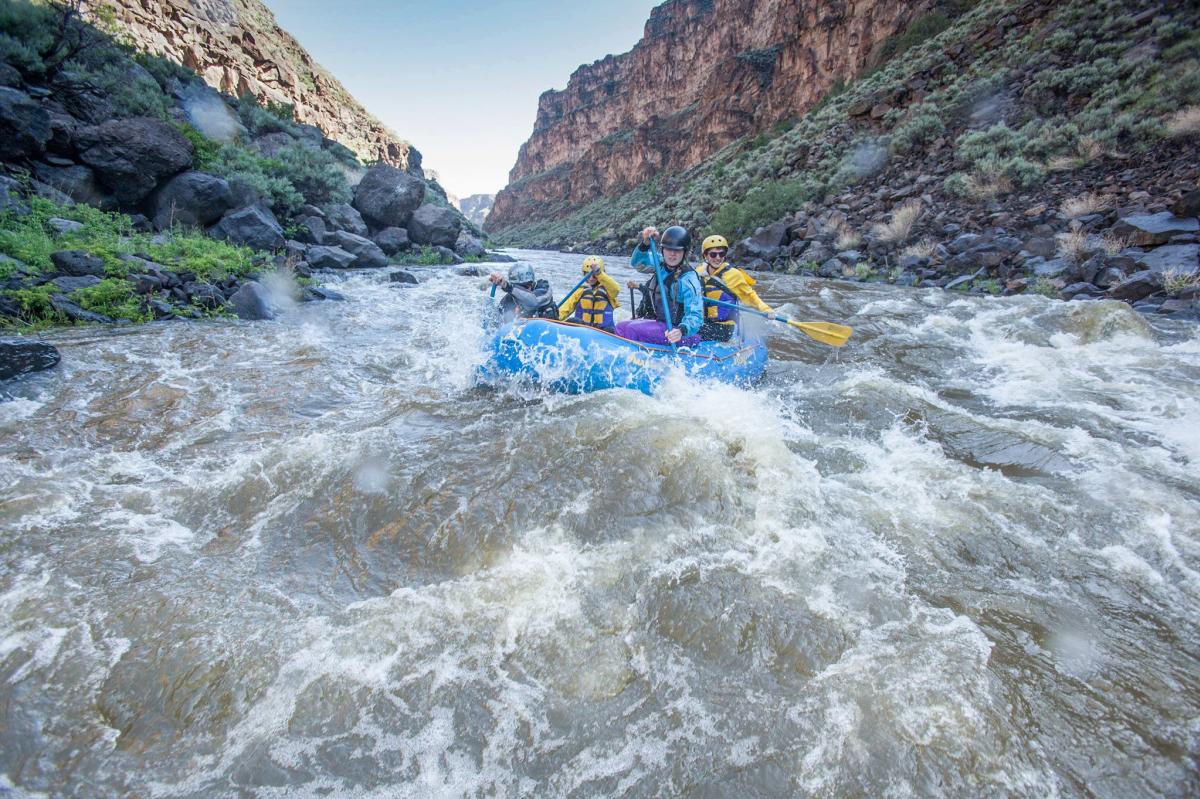Tour Operator Registering a Business
Your business structure affects how much you pay in taxes, your ability to raise money, the paperwork you need to file, and your personal liability. Not sure which business type to choose? You can find more information about the various business types as well as other business guidance by visiting the Small Business Administration’s website.
- Sole Proprietorship
- A sole proprietorship is the simplest and most common structure chosen to start a business. It is an unincorporated business owned and run by one individual with no distinction between the business and you, the owner. You are entitled to all profits and are responsible for all your business’s debts, losses, and liabilities.
- Domestic New Mexico Limited Liability Company (LLC)
- A limited liability company is a type of business structure that is formed pursuant to the Limited Liability Company Act by an organizer or organizers that have filed articles of organization with the Secretary of State. Owners of an LLC are called members. A Limited Liability Company is a business where no part of the income or profit is distributable to its members, directors, or officers.
- You can register Domestic New Mexico LLCs online through the office of the Secretary of State.
- Partnership
- Partnerships are the simplest structure for two or more people to own a business together and can be a good choice for groups who want to test their business idea before forming a more formal business. There are two common kinds of partnerships: limited partnerships (LP) and limited liability partnerships (LLP).
- Limited partnerships have only one general partner with unlimited liability, and all other partners have limited liability. The partners with limited liability also tend to have limited control over the company, which is documented in a partnership agreement. Profits are passed through to personal tax returns, and the general partner — the partner without limited liability — must also pay self-employment taxes.
- Limited liability partnerships are similar to limited partnerships but give limited liability to every owner. An LLP protects each partner from debts against the partnership, they won't be responsible for the actions of other partners.
- You must register in person at the office of the Secretary of State with the following forms.
- Partnerships are the simplest structure for two or more people to own a business together and can be a good choice for groups who want to test their business idea before forming a more formal business. There are two common kinds of partnerships: limited partnerships (LP) and limited liability partnerships (LLP).
- Corporation
- A Corporation is a separate legal entity. It is formed by filing articles of incorporation in the state where the corporation is located, and by designating shareholders, each with a specific number of shares. The corporation also creates a Board of Directors to oversee the corporate business.
- You must register Domestic New Mexico Profit Corporation in person at the office of the Secretary of State with the following forms.
- Domestic Non-Profit Incorporation
The office of the Secretary of State is the filing office for businesses in New Mexico. Visit the pages at this link specific to the type of business you would like to register.
How to choose a location for your Tour Operator business, obtain licenses and permits
Know your business. At this stage of the process, you have decided on which sector of tourism you would like to focus on. Reference the Entrepreneur Tour Operator Toolkit - Product Development Guide Your company’s success and its location are closely tied, finding the right place to ‘set up shop’ is essential.
Your local tourism attractions are good indicators of what would and would not make a successful tourism business venture. For example, if your area is secluded from the populace and dense with wineries, the guided winery tours, local bed and breakfasts, and airport transportation services are all viable business options.
Be sure to size up the competition and thoroughly research the tourism businesses in the areas you are considering before you decide which location is right for you. For example, if you are considering a location that is already a tourism destination, can you leverage the other experiences that visitors are drawn into the area for? Or are there already many competing types of tours in that specific area that you would be competing with? You will want to choose a location that is not overly congested, and one that you can contribute something unique to.
Here are seven great tips for choosing the best location for your company.
How to obtain Federal Employers Identification Number (FEIN) from the IRS
Your Employer Identification Number (EIN) is your federal tax ID. You need it to pay federal taxes, hire employees, open a bank account, and apply for business licenses and permits.
It's free to apply for an EIN, and you should do it right after you register your business.
Your business needs a federal tax ID number if it does any of the following:
- Pays employees
- Operates as a corporation of partnership
- Files tax returns for employment, excise, or alcohol, tobacco, and firearms
- Withholds taxes on income, other than wages, paid to a non-resident alien
- Uses a Keogh Plan (a tax-deferred pension plan)
- Works with certain types of organizations
Apply for an EIN with the IRS assistance tool. It will guide you through questions and ask for your name, social security number, address, and your "Doing Business As" (DBA) name. Your nine-digit federal tax ID becomes available immediately upon verification.
How to register with the State Taxation and Revenue for CRS tax number
The CRS number is used to report and pay state and local option gross receipts tax, New Mexico withholding tax, and compensating tax under the Combined Reporting System (CRS). Known as a CRS Identification Number, it is used to report and pay the tax collected on gross receipts from businesses conducted in New Mexico.
IMPORTANT: Before you apply for a State CRS number, make sure you have the following:
- Your Federal Tax ID Number (EIN)
- Your business registration number from the Secretary of State
Note: this link to create your State CRS Number will take you to the New Mexico Taxation and Revenue (TAP) website. The website will save your entries in-process for up to 24 hours, which will enable you to return to the website and continue your application. Once there, under CREATE A LOGON, select Sign Up Now, then select Business. Follow the steps to create your State CRS Number.
Licenses & Permits
Most small businesses need a combination of licenses and permits from both federal and state agencies. The requirements and fees vary based on your business activities, location, and government rules. For complete assistance utilize the step-by-step instructions on the Small Business Administration (SBA) website for applying for licenses and permits.
The New Mexico SBA district office and resource partners such as SCORE, the New Mexico Small Business Development Centers (SBDC), Women’s Business Centers, and the New Mexico Veteran’s Business Outreach Center (VBOC) provide free business counseling to assist you. Request local assistance here.
If applicable;
- if your tour operator business is going to include small passenger vehicles for tours and sightseeing services, known as ‘compensated transportation of passengers in motor vehicles at rates that apply to each individual passenger,’ you will need to contact the New Mexico Public Regulation Commission (PRC) and reference the “Motor Carrier Rules” for information on the permits, fees and insurance coverage that your business may need to apply for and be required to carry.
- Additionally, If your tour business plans to operate a truck or bus across the state line, or hold a USDOT number, then Unified Carrier Registration (UCR) applies to you. UCR requires individuals and companies that operate commercial motor vehicles across state lines to register and pay an annual fee based on the size of their fleet. A Commercial Motor Vehicle (CMV) is defined as a self-propelled vehicle used on highways in commerce to transport passengers or cargo, if the vehicle:
- Has a gross vehicle weight rating or gross vehicle weight of 10,001 pounds or more;
- Is designed to transport 11 or more passengers (including the driver)
For assistance:
- PRC and UCR: 505-827-4519
- NMDOT: 505-795-1401
Refer to the Entrepreneur Tour Operator Toolkit – Funding & Insuring Your Business Guide as your next step.

